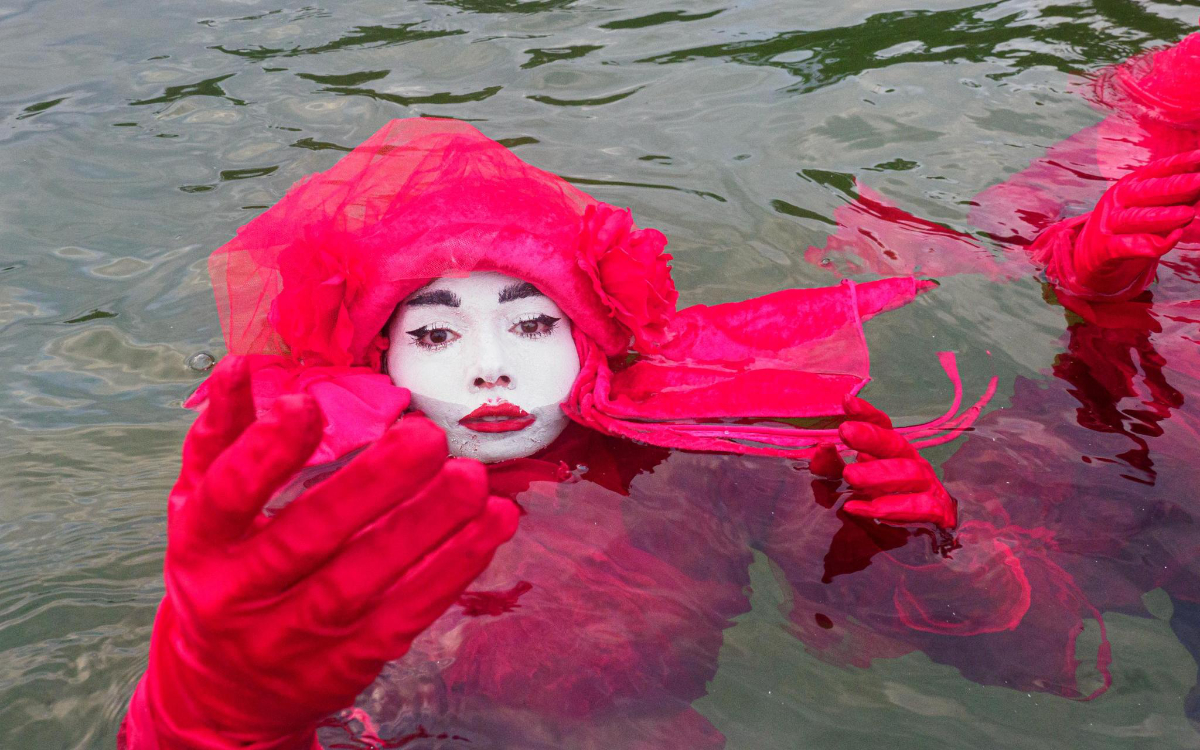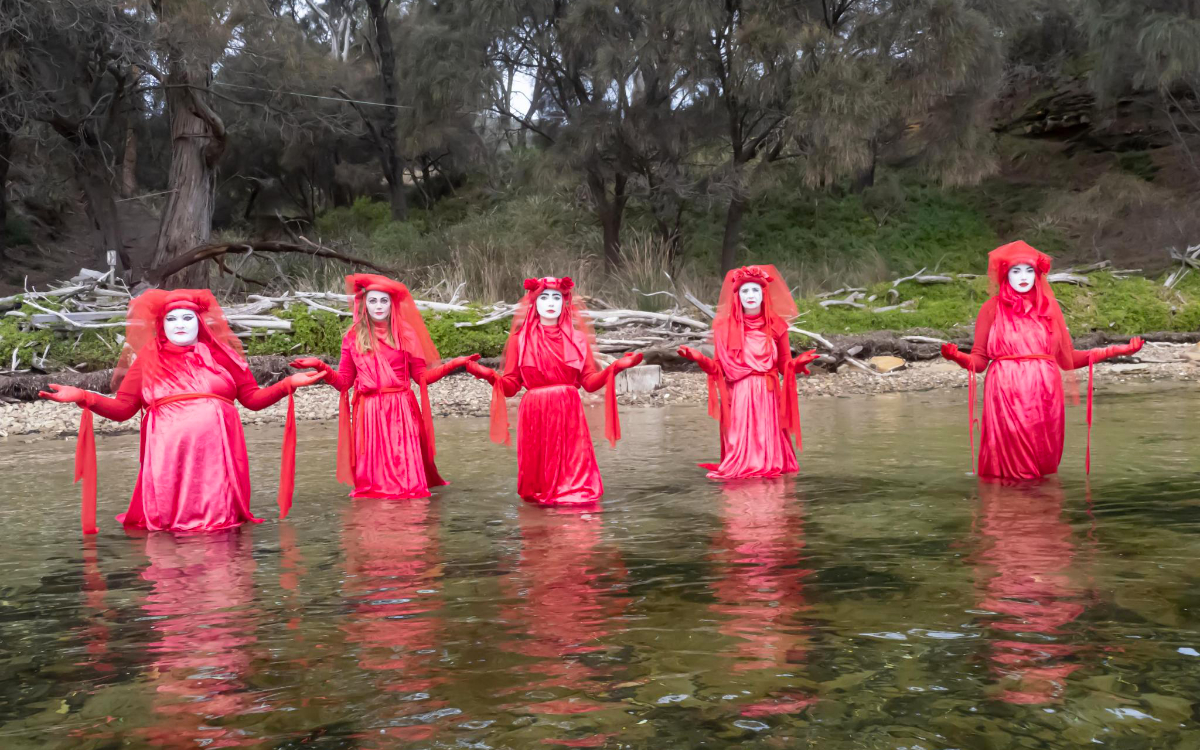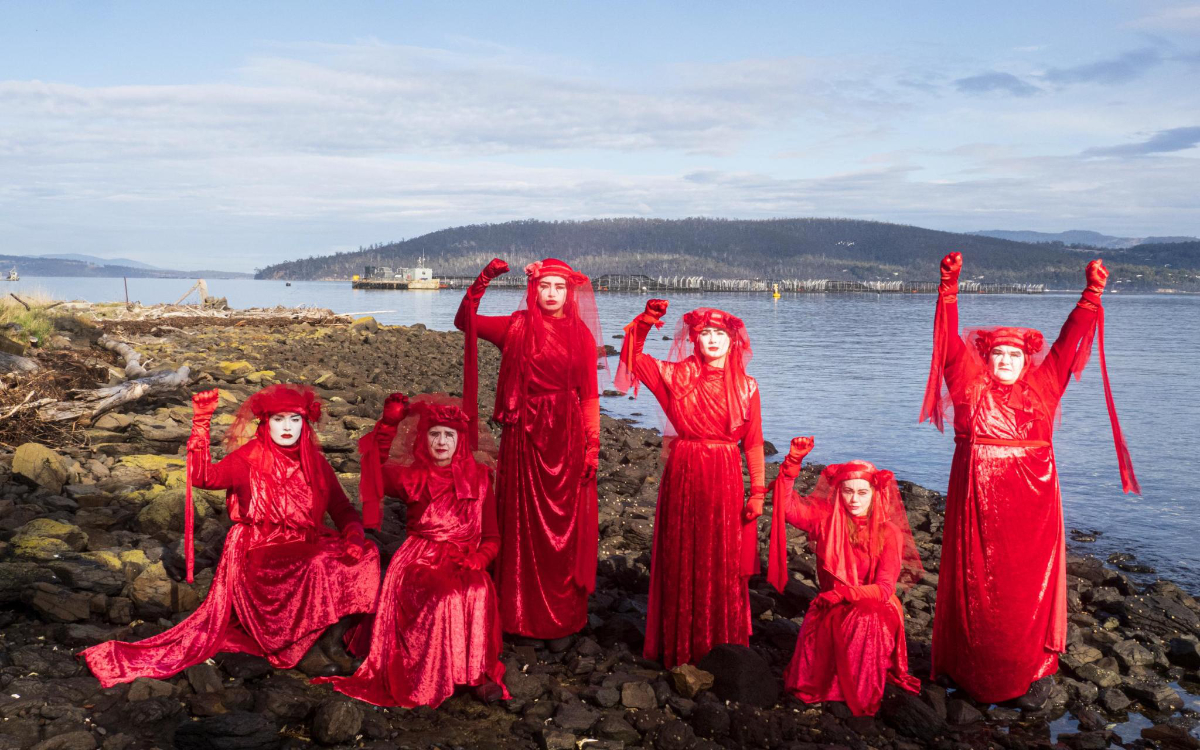
Red Rebels protest the Tasmanian fish farming industry
Extinction Rebellion Australia, 5 Aug 2022
The salmon industry is one of many contributors to the slow disaster of marine ecological collapse, unfolding across the globe.
In early August the Red Rebel brigade traced the shoreline adjacent to farmed salmon pens near Tinderbox on Lutruwita/Tasmania's southern coast.
Gesturing toward the ever-expanding extractivist model of industrial salmon farming, the red ethereal figures evoked the imagery of the blood of sacrificed kin.

'Tasmanian salmon’ suggests a local natural product, and the island’s wild and lovely island coastline. But it’s actually a battery hen-type product. Atlantic salmon are not native to Tasmania. The species traditionally breeds in areas from the waters of northern Europe to the north-east coast of the US.
The current practice of farming salmon in pens exposed to the sea causes increasing environmental risks to the surrounding marine life. Like many industrial farming practices, it is wasteful and unsustainable. Australia’s Sustainable Seafood Guide says NO to Atlantic Salmon.
Atlantic salmon are carnivorous fish that are dependent on wild caught fish that is manufactured into fish feed. While the amount of wild caught fish used in feed has been reduced over recent years, it is currently higher than the amount of salmon that is grown in the farms, resulting in a net burden on our wild fisheries. ‘Good Fish’ website
Atlantic salmon fishing in Tasmania has grown enormously over the last 25 years. By 2020 it was worth an annual $AUD887 million.

The major operators, Huon, Tassal and Petuna, plan vast expansions in areas such as Storm Bay, south of Hobart, and the Bass Strait, although there is evidence that the island’s sheltered river estuaries and bays do not have the capacity to sustain that level of production.
Pollution from the salmon farms damages marine life and puts pressure on stocks of wild fish. Plastic pollution is created when pens break apart during rough weather.
But the biggest problem is the concentrated effluent released by huge schools of fish corralled into pens. Untreated waste builds up beneath and around the pens and raises nitrogen levels, triggering toxic algal blooms and driving out native marine life.
A Guardian news article quotes author Richard Flanagan, whose book ‘Toxic’ exposes the destructive practices of the salmon farming industry.
Flanagan says that the effluent problem alone means the future of current salmon farming practices is untenable. “A sea-based salmon farm is a floating sewage farm – except the sewage is left to pour raw and untreated into our oceans.”
Flanagan says that moving the industry onshore is not perfect as an alternative, but is the only way to fix it. “No other solution ends the catastrophic destruction to marine ecosystems or the systematic animal cruelty implicit in sea-based salmon farming.”

Farming fish on land mainly uses large-scale circulating aquaculture systems (RAS) where none of the solid waste is discharged into the ocean.
The salmon farming industry is reluctant to adapt, but may be forced to. As oceans continue to warm due to climate change, marine heatwaves are already killing stocks of farmed fish.
Current industrial farming methods mean that food production is responsible for 20–30% of greenhouse gases. The salmon industry represents one of many contributors to the slow disaster of marine ecological collapse, unfolding across the globe.
We stand at a crossroads with the existential threat of the interconnected climate and extinction crisis. The endless industrial economic growth models of the extractive-extinction age are suicidal.
We need to re-imagine what it is to be in the right relationship with our life support systems.
We demand investment in development and food growing practices that regenerate our life support systems instead of destroying them.